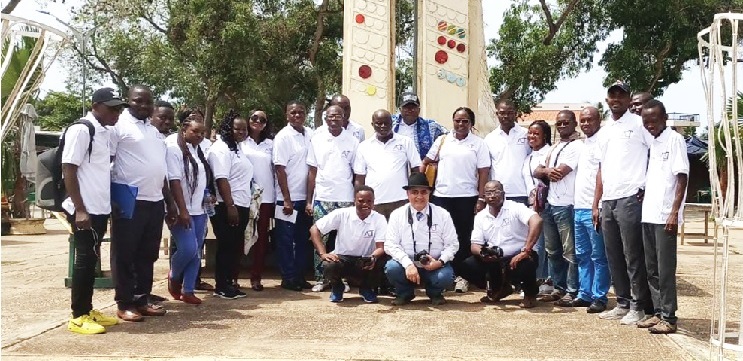
Weekend in Togo
We entered Lome to a stunning postcard scenery of a coconut tree lined pristine ocean coastline to our right, with a rush hour vehicular traffic that choked the highway to our left.
Advertisement
While the blue translucent Atlantic Ocean cast its spell along the long shore line, I was equally fascinated watching the motorbikes, some with lady riders, weave their way amid the chock-full traffic to the left.
It was a balancing act; peace and tranquillity to the right, energy and ruggedness to the left.
Welcome to Togo, a symbolic African country with a chequered political history that is fast becoming a popular tourist and commercial destination.
This has been possible because of its serene and lovely long coastline beach, the relatively low cost of living and high security that have continued to entice tourists to the francophone country.
In addition, Lome Port, said to be the only deep-water port on the West –African coast that can accommodate new generation vessels, has been recognised by ECOWAS as a Free Trade Zone for the sub-region.
Welcome to Togo
Togo, officially the Togolese Republic, is a country in West Africa. It is bordered by Ghana to the west, Benin to the east and Burkina Faso to the north.
Togo covers 57,000 square kilometres (22,008 square miles), making it one of the smallest countries in Africa, with a population of approximately eight million.
It is also one of the narrowest countries in the world with a width of less than 115 km (71 miles) between Ghana and its eastern neighbour Benin.
From the 16th to the 18th century, the coastal region was a major trading centre for Europeans to purchase slaves, earning Togo and the surrounding region the name "The Slave Coast". In 1884, Germany declared a region including present-day Togo as a protectorate called Togoland.
After World War I, rule over Togo was transferred to France. Togo gained its independence from France in 1960. While the official language is French, many other languages are spoken.
Why visit
I had come to Togo in my official capacity as the Secretary-General of the Pan African Writers Association (PAWA) with its headquarters in Accra, Ghana, for the first edition of the Togo International Writers Conference.
The conference, which was to discuss the contribution of African Literature to the UN Sustainable Development Goals (SDGs), was also designed to celebrate the World Book and Copyright Day on April 23. With me on the trip were staff of the PAWA Secretariat.
To welcome delegates made up of writers, academics and journalists to Togo was the hardworking and ebullient President of the Togo Writers Association, Professor Germaine Koumealo Anate.
Prof. Anate, who apart from being the Writers’ President was also a Member of the Togolese Parliament as well as a professor at the University of Lome, was accompanied by her equally efficient officials and members of the Writers Association.
Anate was in high spirits as she welcomed guests to the La Faccia A’Angelo Restaurant, in the middle class Agoue Assiyeye neighbourhood of Lome, capital of Lome that rainy April evening. She had every reason to be a happy woman. After weeks of intensive planning, networking and meetings, the much awaited First Edition of the Togo International Writers Conference had finally taken off.
As guests filed in to the cavernous and sedate interior of the restaurant for a welcome dinner, there were hearty hand shaking, hugs and jokes as writers and conference delegates were united with old friends while meeting new ones.
After meeting some of my old friends such as President of the Gabonese Writers Association, Eric Bekale, among others, Prof. Anate introduced me to the Keynote Speaker at the conference, Professor Mohougnon Kakpo, a gregarious Professor of Communication as well as a Cabinet Minister from the Benin Republic.
As we exchanged pleasantries in halting French and English languages, Kakpo informed me that he was also a native doctor. “I am a ‘Babalawo”, he proudly announced as he gleefully pumped my hands in a hearty greeting.




